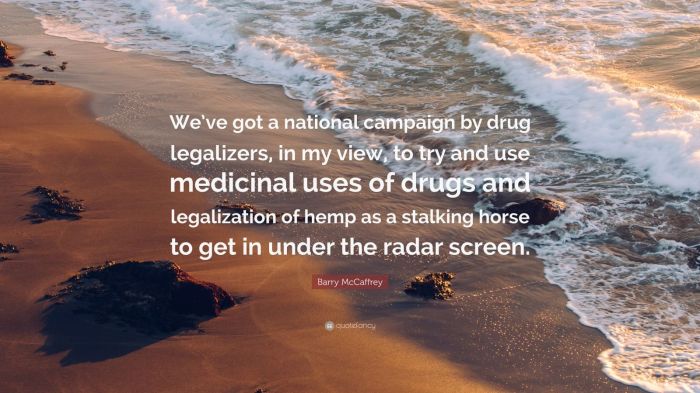Most of what drug legalizers have written has focused on the potential benefits of legalization, arguing that it would reduce crime, generate tax revenue, and improve public health. However, opponents of legalization argue that it would increase drug use and addiction, and lead to other social problems.
The debate over drug legalization is a complex one, with strong arguments on both sides. In order to make an informed decision about whether or not to legalize drugs, it is important to understand the arguments of both sides.
Drug Legalization Literature Focus

The writings of drug legalizers have primarily centered on the following themes:
- The negative consequences of drug prohibition, such as increased crime, violence, and incarceration rates.
- The potential benefits of drug legalization, such as reduced crime, increased tax revenue, and improved public health.
- The need for a more rational and evidence-based approach to drug policy.
Historical Context of Drug Legalization Advocacy: Most Of What Drug Legalizers Have Written Has Focused On
The advocacy for drug legalization has evolved over time, with key events and movements shaping the debate:
- 19th century:The temperance movement, which sought to prohibit alcohol consumption, laid the foundation for drug prohibition.
- Early 20th century:The Harrison Narcotics Tax Act of 1914 criminalized the sale and possession of opioids and cocaine.
- 1960s-1970s:The counterculture movement and the Vietnam War led to increased drug use and a backlash against drug prohibition.
- 1971:The Controlled Substances Act classified drugs into five schedules based on their potential for abuse and medical use.
- 1980s-1990s:The “War on Drugs” led to increased criminalization and incarceration rates for drug offenses.
- 21st century:The legalization of medical marijuana in several states and countries has reignited the debate on drug legalization.
Arguments for Drug Legalization

Drug legalizers present several arguments in support of legalization:
- Reduced crime:Legalization would eliminate the black market for drugs, reducing violence and other crimes associated with drug trafficking.
- Increased tax revenue:Legalized drugs could be taxed, generating revenue for governments to fund public services.
- Improved public health:Legalization would allow for the regulation and quality control of drugs, reducing the risks associated with drug use.
- Respect for individual rights:Drug legalization proponents argue that individuals should have the right to make choices about their own bodies and drug use.
Counterarguments to Drug Legalization
Opponents of drug legalization raise several counterarguments:
- Increased drug use:Legalization could lead to increased drug use, particularly among young people.
- Health risks:Drugs can have harmful health effects, and legalization could increase the number of people who experience these risks.
- Social costs:Drug use can lead to social problems such as addiction, homelessness, and crime.
- Gateway drug theory:Some argue that legalization of marijuana could lead to increased use of more dangerous drugs.
Impact of Drug Legalization on Society

The potential societal impacts of drug legalization are complex and multifaceted:
- Positive impacts:Legalization could reduce crime, increase tax revenue, improve public health, and promote individual rights.
- Negative impacts:Legalization could increase drug use, lead to health risks, create social costs, and undermine public health efforts.
The actual impact of drug legalization would likely vary depending on the specific drugs legalized, the regulatory framework established, and the social and cultural context.
International Perspectives on Drug Legalization

Drug legalization policies and attitudes vary significantly across countries:
- Portugal:In 2001, Portugal decriminalized the possession and use of all drugs for personal use.
- Netherlands:The Netherlands has a long history of tolerance towards drug use, with the sale and possession of small amounts of marijuana and other drugs being decriminalized.
- United States:The United States has a strict drug prohibition policy, with severe penalties for drug offenses.
These variations are influenced by factors such as cultural norms, political ideologies, and public health concerns.
Key Questions Answered
What are the main arguments in favor of drug legalization?
The main arguments in favor of drug legalization include the reduction of crime, the generation of tax revenue, and the improvement of public health.
What are the main arguments against drug legalization?
The main arguments against drug legalization include the increase in drug use and addiction, and the potential for other social problems.
What is the current state of the debate over drug legalization?
The debate over drug legalization is a complex one, with strong arguments on both sides. As the evidence on the effects of legalization continues to grow, it is important to remain open-minded and to consider all of the available information before making a decision about whether or not to support legalization.